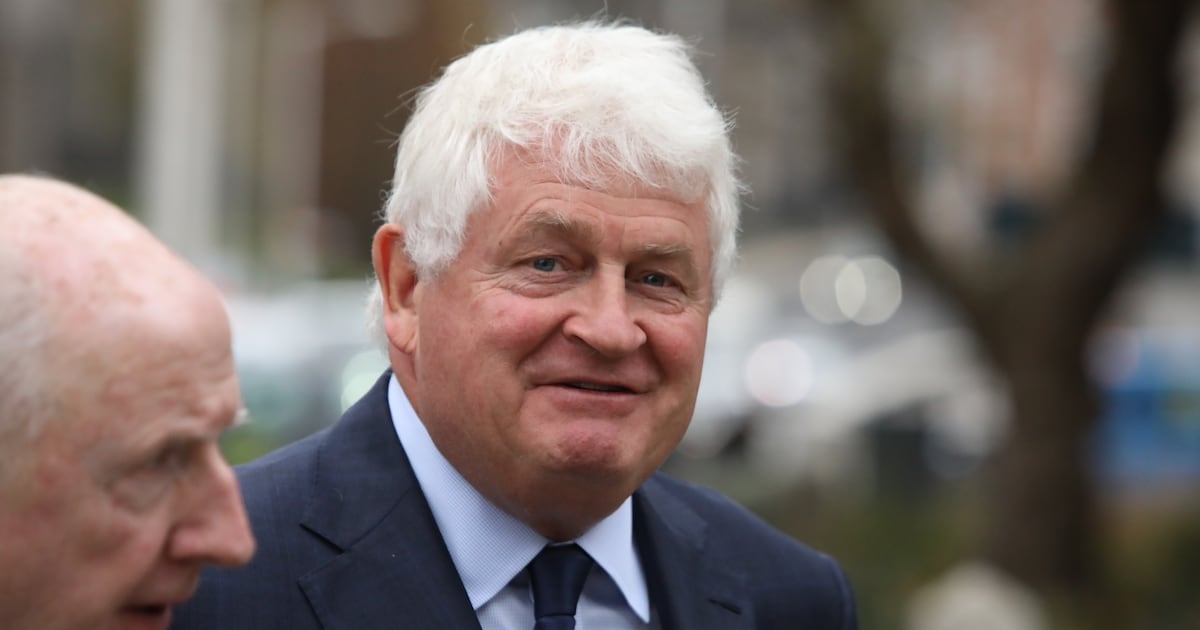Politics
Billionaires Critique Ireland’s Infrastructure and Governance Amid Calls for Change

Billionaires Denis O’Brien and John Collison have sparked significant debate in Ireland regarding the country’s infrastructure and governance. Their recent comments at a conference questioned the effectiveness of current leadership and highlighted perceived inefficiencies in both public services and regulatory frameworks. O’Brien referred to university graduates as “entitled” and criticized remote working, while Collison expressed concerns about the overregulation hindering progress.
O’Brien, who has been a tax resident in both Malta and Portugal, called attention to the State’s role in enabling global tax avoidance by major US technology companies. He noted, “This is perfectly legal and within OECD rules,” yet raised the ethical question of whether such practices are acceptable. His remarks echo concerns about Ireland’s tax policies and their implications for social equity.
In a similar vein, Collison, co-founder of the payments company Stripe, described Ireland as “hopelessly inefficient” due to excessive regulation and numerous quangos, or quasi-autonomous non-governmental organizations. The sentiments shared by these tech leaders resonate with ongoing criticisms of the government’s handling of housing and infrastructure issues.
Criticism of Government Policies
The Irish government has faced mounting criticism over its sluggish response to the housing crisis, with calls for more affordable homes. Critics argue that the planning and regulatory system is impeding progress. In a discussion on the podcast *Inside Politics*, Orla Hegarty, an assistant professor at University College Dublin, dismissed Collison’s suggestion of deregulation as an oversimplification of the problem. She emphasized the need for nuanced solutions rather than blanket policies.
The discourse surrounding these billionaire critiques raises an important question: why do significant ideas often emerge from wealthy individuals rather than elected officials? Historically, high-profile figures such as airline executive Michael O’Leary have made controversial statements about public infrastructure, including his view that the MetroLink project to Dublin Airport is unnecessary.
O’Leary’s remarks, along with those of Dermot Desmond, who shares a similar stance on the MetroLink, highlight a recurring theme in Irish society—the belief that the country would benefit if business leaders took charge. This perspective, often perceived as an import from American culture, suggests a hierarchy where billionaires are seen as more capable of governance than career politicians.
A Call for Bold Leadership
While O’Brien and Collison may have valid points regarding the need for improved infrastructure, their proposed solutions, particularly Collison’s call for deregulation, have drawn criticism for lacking depth. The recent elections in Ireland showcased a political landscape devoid of bold ideas, with many politicians echoing Collison’s statements without offering substantive plans.
Simon Harris, Tánaiste and a member of the government, acknowledged the bureaucratic challenges, stating on social media, “Too many layers, too many structures, processes that take too long. Time for the pendulum to swing back.” His comments reflect a broader frustration among citizens regarding the inefficiencies of the political system.
The challenges faced by the Irish government are not unique. During the COVID-19 pandemic, countries worldwide adopted a start-up mentality, focusing resources on healthcare to mitigate the virus’s spread. While this approach had short-term success, it led to significant negative outcomes in other areas, such as education and mental health.
The example of Ardnacrusha, a hydroelectric power station constructed in the late 1920s, illustrates the trade-offs involved in large-scale projects. The Irish State allocated a substantial portion of its resources to this single endeavor, which limited investment in other vital areas like housing and transportation. Today’s political climate, characterized by risk aversion and public scrutiny, makes such singular focus untenable.
As discussions around infrastructure and governance continue, it is crucial for the public to demand greater accountability from elected officials rather than relying solely on insights from successful business figures. While billionaires may excel in their respective industries, the complexity of running a country requires a broader vision and a willingness to take calculated risks.
In conclusion, the critiques from O’Brien and Collison highlight significant issues within Ireland’s infrastructure and governance. However, these discussions should serve as a catalyst for broader engagement and innovative solutions rather than a call for business leaders to assume political roles. The future of Ireland’s governance may depend on the ability of elected officials to rise to the occasion and prioritize the needs of their constituents.
-

 Top Stories3 months ago
Top Stories3 months agoTributes Surge for 9-Year-Old Leon Briody After Cancer Battle
-

 Entertainment4 months ago
Entertainment4 months agoAimee Osbourne Joins Family for Emotional Tribute to Ozzy
-

 Politics4 months ago
Politics4 months agoDanny Healy-Rae Considers Complaint After Altercation with Garda
-

 Top Stories4 months ago
Top Stories4 months agoIreland Enjoys Summer Heat as Hurricane Erin Approaches Atlantic
-

 World5 months ago
World5 months agoHawaii Commemorates 80 Years Since Hiroshima Bombing with Ceremony
-

 Top Stories3 months ago
Top Stories3 months agoNewcastle West Woman Patricia Foley Found Safe After Urgent Search
-

 Top Stories5 months ago
Top Stories5 months agoFianna Fáil TDs Urgently Consider Maire Geoghegan-Quinn for Presidency
-

 World5 months ago
World5 months agoCouple Convicted of Murdering Two-Year-Old Grandson in Wales
-

 World5 months ago
World5 months agoGaza Aid Distribution Tragedy: 20 Killed Amid Ongoing Violence
-

 World5 months ago
World5 months agoAristocrat Constance Marten and Partner Convicted of Infant Murder
-

 Top Stories4 months ago
Top Stories4 months agoClimbing Errigal: A Must-Do Summer Adventure in Donegal
-

 Top Stories4 months ago
Top Stories4 months agoHike Donegal’s Errigal Mountain NOW for Unforgettable Summer Views








